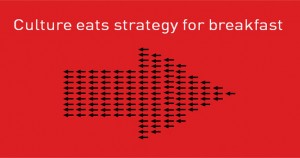Go Poets! Poetry at the Olympics
 Did you know that poetry was an Olympic sport — with gold, silver, and bronze medals? Long, long ago, the original Greek games always had a poetry festival as well as athletic events. When the games were revived in the modern era, so was the poetry. In fact, the 1912 games in Stockholm featured poetry, literature, painting, sculpture, and architecture. I gather that the poetry had to celebrate sports in some way or another…which led to some embarrassing results. For the Helsinki games in 1952, the various literary/artistic prizes were quietly dropped and they’ve not been seen since. It seems to me that we should bring them back — why not celebrate all forms of human endeavor, not just athletics? To read more about poetry at the Olympics, click here or here.
Did you know that poetry was an Olympic sport — with gold, silver, and bronze medals? Long, long ago, the original Greek games always had a poetry festival as well as athletic events. When the games were revived in the modern era, so was the poetry. In fact, the 1912 games in Stockholm featured poetry, literature, painting, sculpture, and architecture. I gather that the poetry had to celebrate sports in some way or another…which led to some embarrassing results. For the Helsinki games in 1952, the various literary/artistic prizes were quietly dropped and they’ve not been seen since. It seems to me that we should bring them back — why not celebrate all forms of human endeavor, not just athletics? To read more about poetry at the Olympics, click here or here.
Culture Eats Strategy for Breakfast
 A new CEO sweeps into your company and announces a new strategy. Your company hasn’t been doing too well so you think it just might be time for a new strategy — the old one wasn’t working, maybe a new one will. Unfortunately, the new strategy doesn’t fit well with your existing culture, which focuses on quality. The new CEO wants to focus on speed — “Let’s get to market before our competitors do — the first mover has the advantage”. Yet your fellow employees think, “There’s always a market for quality. Quality wins in the long run.”
A new CEO sweeps into your company and announces a new strategy. Your company hasn’t been doing too well so you think it just might be time for a new strategy — the old one wasn’t working, maybe a new one will. Unfortunately, the new strategy doesn’t fit well with your existing culture, which focuses on quality. The new CEO wants to focus on speed — “Let’s get to market before our competitors do — the first mover has the advantage”. Yet your fellow employees think, “There’s always a market for quality. Quality wins in the long run.”
When strategy and culture are at odds with each other, which one wins? Culture wins every time. In fact, Peter Drucker said that “culture eats strategy for breakfast.” Changing strategy is fairly easy — it’s just an announcement. But if the new strategy doesn’t fit the culture, it’s simply an announcement of prospective failure. First, you have to change the culture.
Watch the video for more information on culture versus strategy.
Strategy versus Operational Effectiveness
As the cheshire cat once said, “if you don’t know where you’re going then any road will lead you there.” It’s certainly true of strategy. When I ask companies what their strategy is, they often say things like, “we’re going to reduce our supply chain costs.” While that’s a  good thing to do, it’s not a strategy — it’s operations. Reducing supply chain costs is improving operational effectiveness, not refining your strategy.
good thing to do, it’s not a strategy — it’s operations. Reducing supply chain costs is improving operational effectiveness, not refining your strategy.
To refine your strategy, it’s useful to ask yourself a simple question: “… and where will that lead us?” We’re going to reduce our supply chain costs … and where will that lead us? That will lower our costs … and where will that lead us? That will help us appeal to price sensitive customers … and where will that lead us? Keep asking the same question repeatedly until you reach a logical conclusion. That’s likely to be your strategy.
(Other useful questions to ask are: “…and who would be interested in that?” and “… and why would they buy from us?”. Or simply: “So what?”).
According to Michael Porter, there are really only three strategies that you can pursue. Learn about them in the video.
Breathing and Profits
 People often assume that making a profit is the purpose of business. But is it really? There are many different ways to judge success. Long-term success ultimately comes from your customers’ response to your offer. If you make your customers better in some way — happier, stronger, healthier, etc. — you’ll probably be successful. If you don’t, you won’t. It’s like breathing. Find out more in the video.
People often assume that making a profit is the purpose of business. But is it really? There are many different ways to judge success. Long-term success ultimately comes from your customers’ response to your offer. If you make your customers better in some way — happier, stronger, healthier, etc. — you’ll probably be successful. If you don’t, you won’t. It’s like breathing. Find out more in the video.
The Art of Persuasion – Arguing Against Obamacare
 What if President Obama doesn’t call me? What if it’s John Boehner who calls to ask for help in crafting an argument against Obamacare? What would I say?
What if President Obama doesn’t call me? What if it’s John Boehner who calls to ask for help in crafting an argument against Obamacare? What would I say?
I’d start by saying that opponents of the ACA have already done the heavy lifting. They’ve positioned Obamacare as an infringement on personal liberty and an expensive one to boot. It’s a fairly simple argument to make — “How dare the government tell me — a free thinking American individual — what to do? That smacks of collectivism and, given the history of government programs, it’s going to cost a lot of money. Our budget is already completely out of whack; we can’t afford to do more.”
So which argument is more persuasive? Frankly, I think the argument against the ACA is simpler and, therefore, should be more persuasive. Indeed, it seems to be working already. The most recent poll I’ve read suggests that 50% of Americans are against the law and only 45% are for it. Still, the proponents of Obamacare haven’t been very aggressive in positioning the law as an issue of responsibility. As they sharpen their rhetorical tools, the fault line could shift — probably not dramatically but perhaps just enough to claim a majority. The history of Social Security may give some insight. Social Security was not broadly popular when it first passed and was deemed by many — perhaps a majority — to be unconstitutional. Today, Social Security is the “third rail” of American politics — nobody can mess with it.